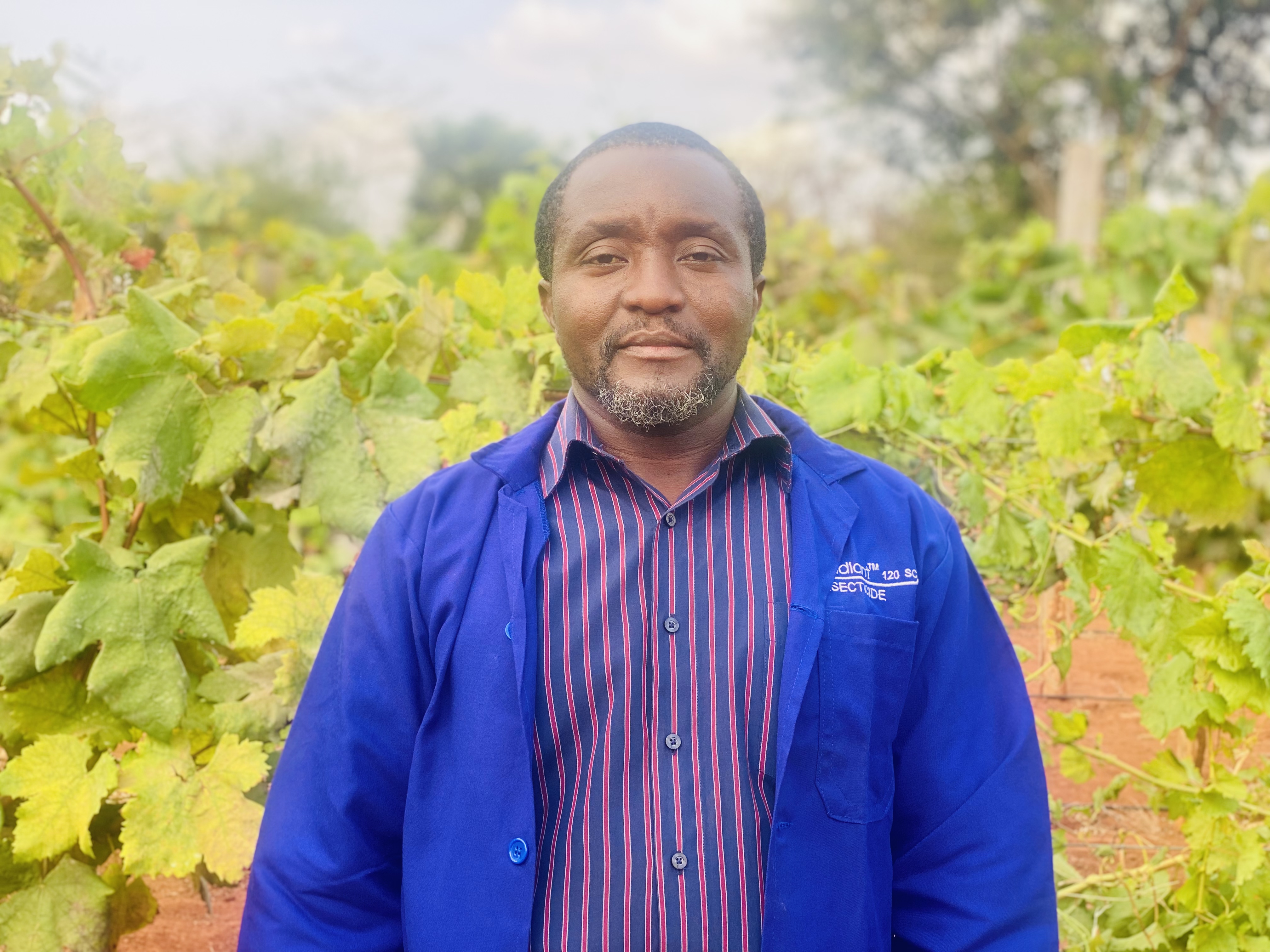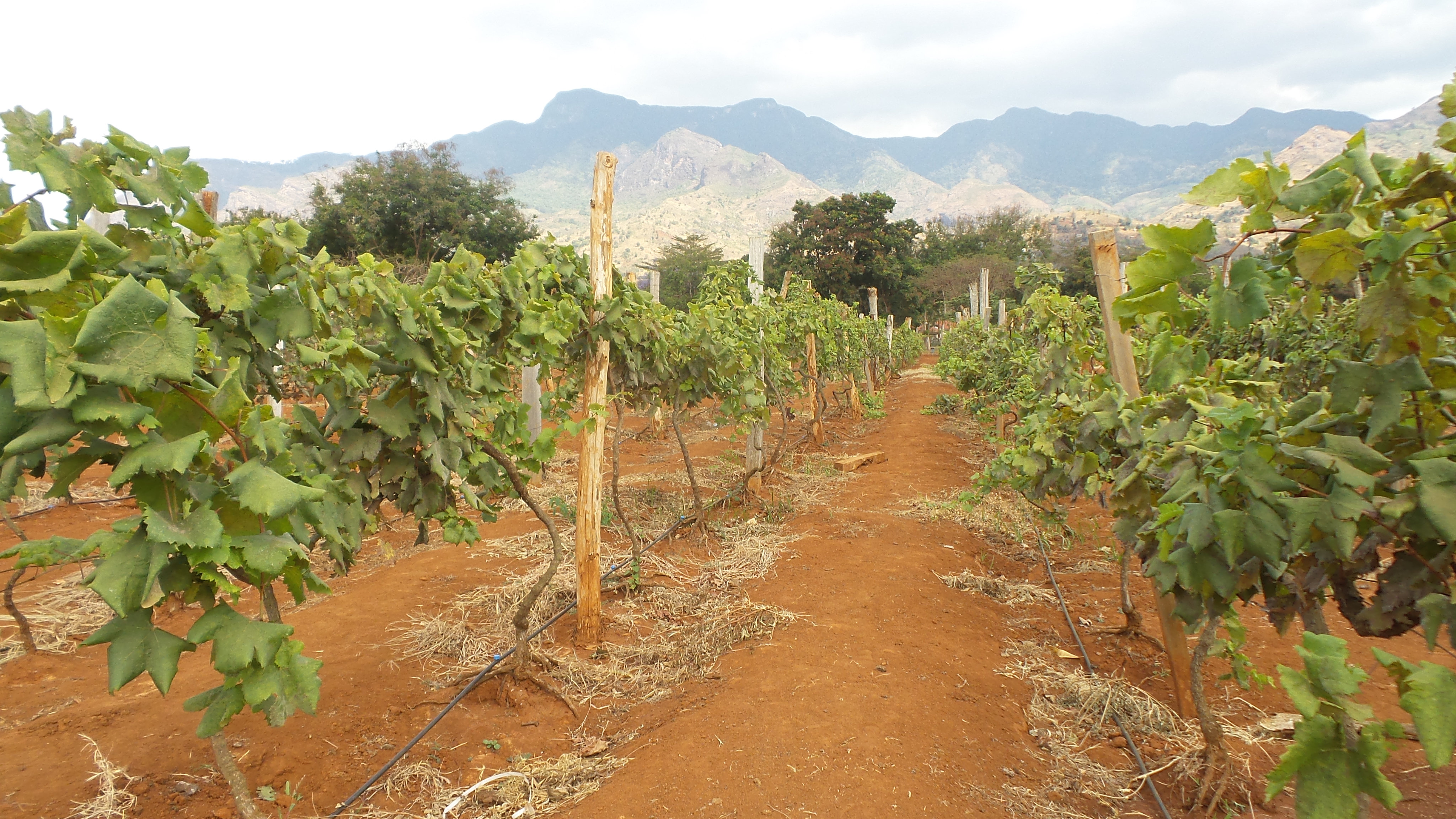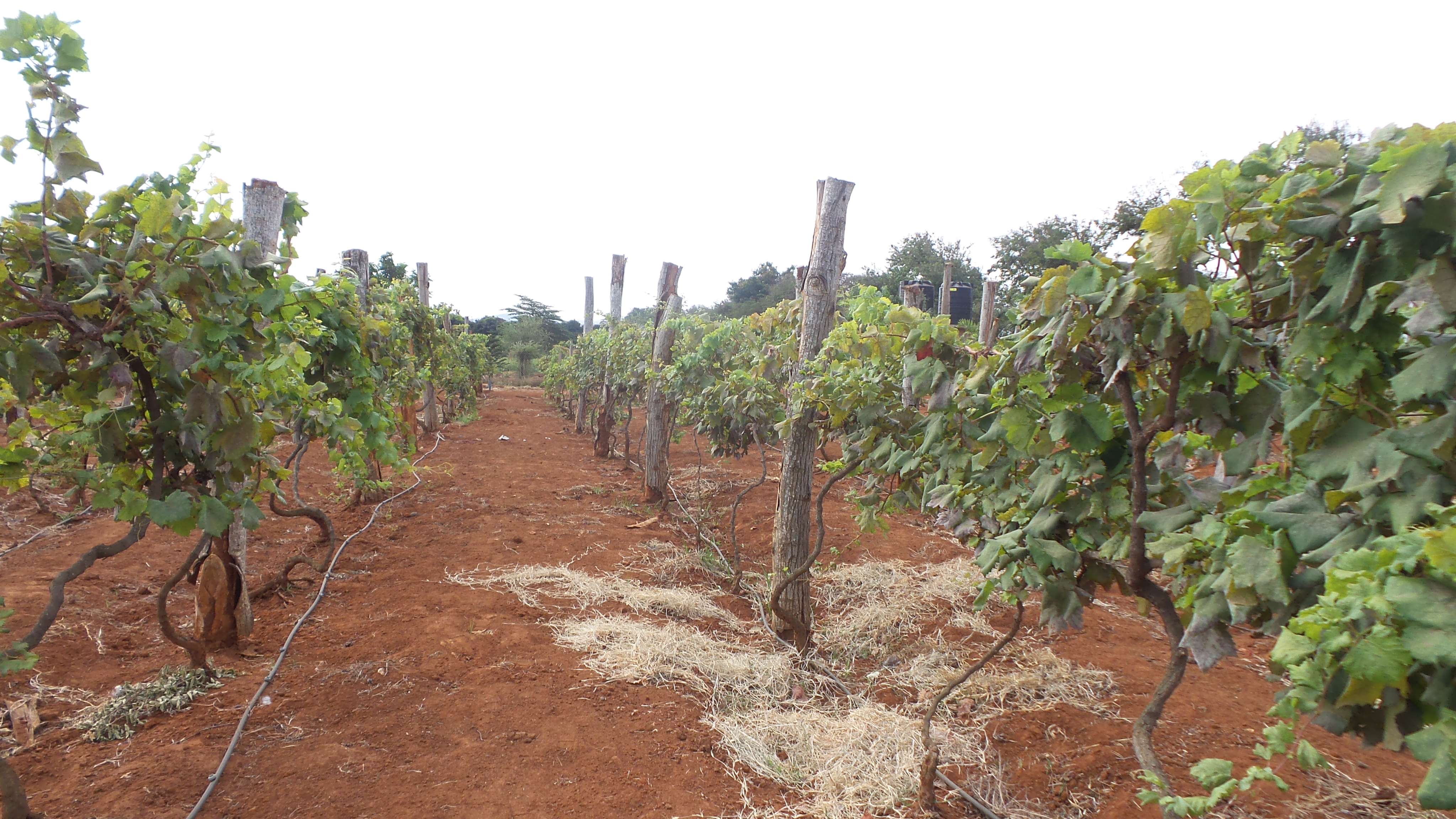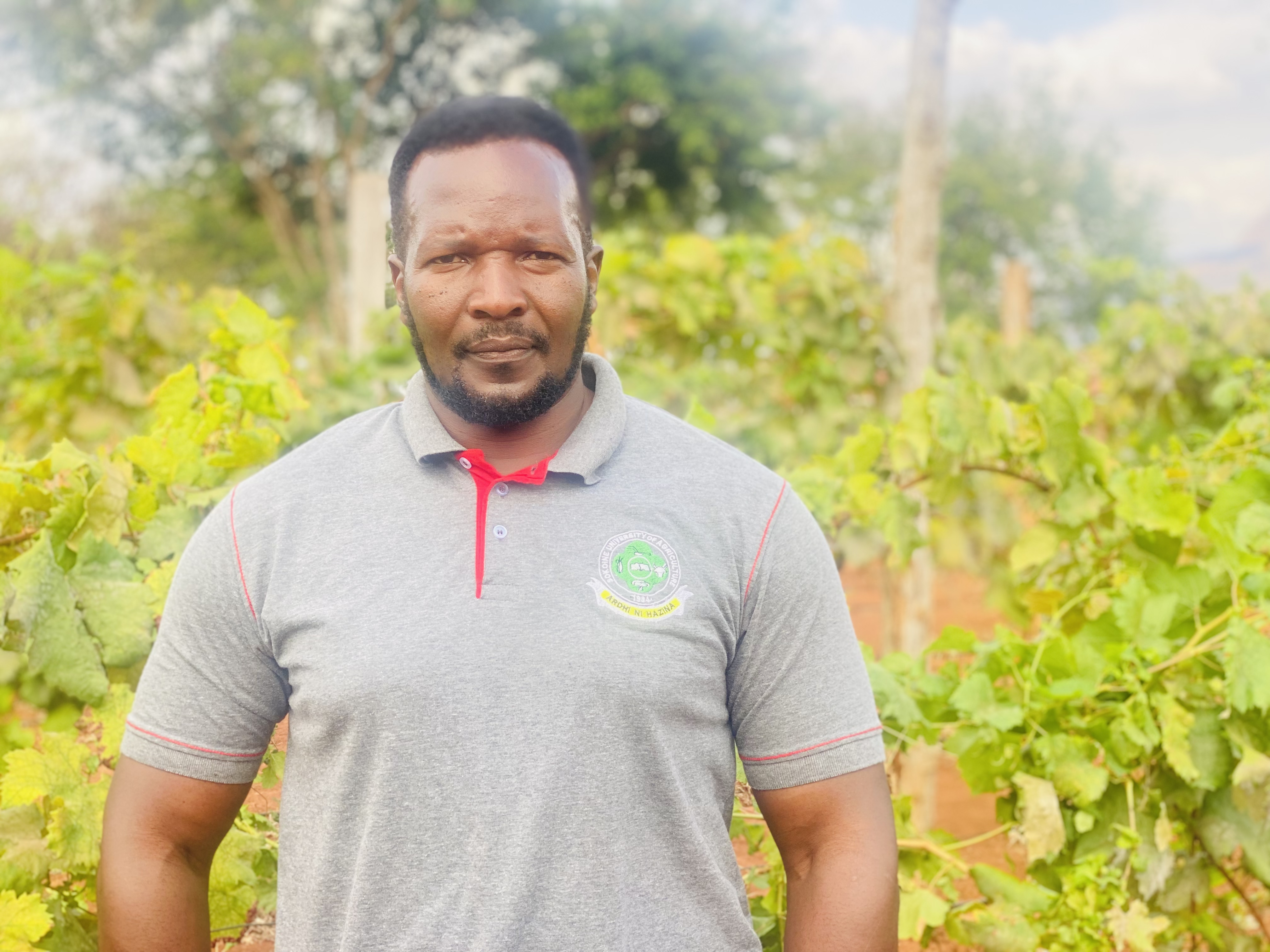The Department of SUA Model Farm at Sokoine University of Agriculture (SUA) has continued to experiment with cultivating different varieties of grapes in order to determine whether or not the crop has the potential to grow well in the soil and climate of the Morogoro region.

Mr. Alpha Mtakwa, Ms. Veronica Rohho, and Mr. Roman Mfinanga from the department had the chance to have a conversation with the Department of Communication and Marketing on Thursday, October 20, 2022, about the initiative and the findings they have thus far obtained.

Mr. Alpha Mtakwa
Mr. Alpha Mtakwa started the conversation by saying that grapes grow very well in areas that do not have a lot of water. A suitable example is Dodoma. The trials they are doing at SUA aim to find out which varieties of grapes will grow and produce well in Morogoro.
Grapes, being perennials, are planted in ground that is 90 cm below ground (i.e. 3 feet and 90 centimeters wide). The grape needs support in order to survive. Because of this, we made a ring of tree poles around each sapling and secured the stems with ropes. We employed drip irrigation, which is particularly useful during the dry season, to keep the water level at an appropriate level for the plants. He explained.
According to Mr. Mtakwa, the grape varieties planted at SUA Model Farm were Makutupora Red, Alphonse Lavalee, Queen of the Vineyard, Muscat Hamburg, Black Rose, and Regina. And they divided the plot into two sections one they planted grapes used for wine and the other used for eating.

Looking at the growth and production percentages, Queen of the Vineyard yielded 67%, Alphonse Lavalle 53%, Makutupora Red produced a very small percentage and the others did not produce at all.
Makutupora Red is the variety that has flourished in abundance even though it has not produced much. It is also a variety that is more resistant to the challenge of fungi.

Ms. Veronica Rohho
Speaking about the various challenges they faced, Ms. Veronica Rohho mentioned three which are: - Diseases, Poor fruit production, and Damage due to weather conditions.

She said: The biggest challenge we face is fungi and we have tried hard to spray fungicides regularly. Another challenge is that the weather in Morogoro has out-of-season rains that cause the fruit to tear. Our plan is to plant new grape seedlings again so that we can continue to find how to overcome these challenges.

Mr. Roman Mfinanga
In conclusion, Mr. Roman Mfinanga, on behalf of the head of the Model Training Farm department, urged all those who cultivate or are interested in Grape cultivation not to hesitate to come or contact the experts from the Sokoine University of Agriculture so that they can grow productively either for home use or even commercial ones.
About the Farm
The Sokoine University of Agriculture established a Model Training Farm to diversify quality teaching, research, field hands-on exercises, outreach, and coordinated crop and animal training. It is used for practical training for undergraduate and postgraduate students, incubates the latest University technologies, and provides a state-of-the-art field research and consultancy facility for students, employees, and the public.




